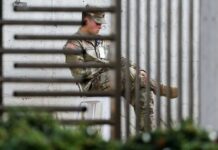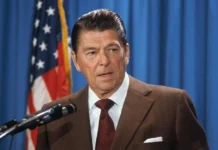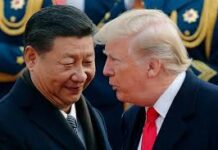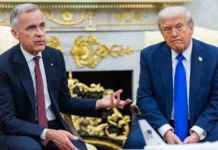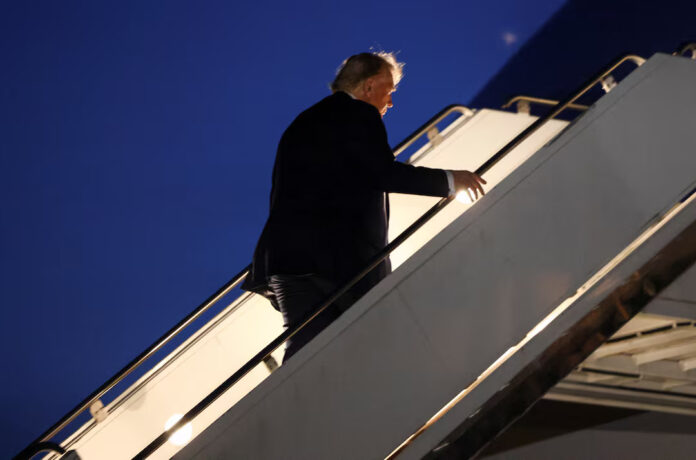
U.S. President Donald Trump abruptly departed the G7 summit in Canada on Monday evening, cutting his visit short due to escalating tensions in the Middle East, according to a statement from the White House.
White House Press Secretary Karoline Leavitt confirmed Trump’s early exit, citing urgent developments between Israel and Iran. “Much was accomplished, but because of what’s going on in the Middle East, President Trump will be leaving tonight after dinner with Heads of State,” she posted on X.
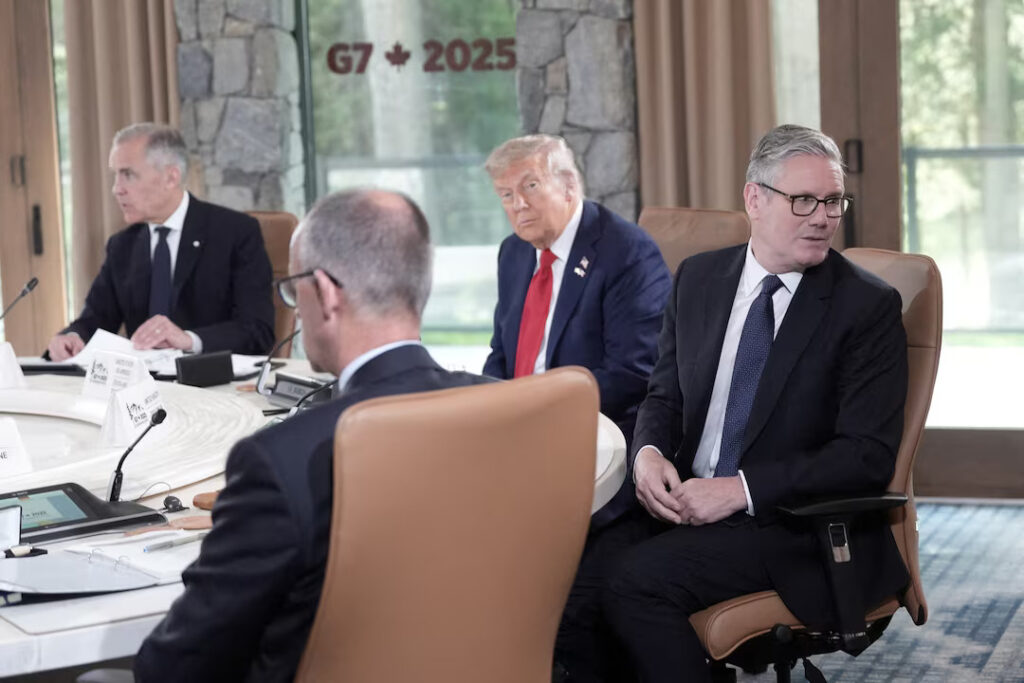
Prime Minister Keir Starmer and US President Donald Trump attend the first working session at the G7 leaders’ summit in Kananaskis, Alberta, Canada June 16, 2025. Stefan Rousseau/Pool via REUTERS
Trump’s departure comes amid reports of a U.S.-backed offer for a ceasefire between Israel and Iran, which French President Emmanuel Macron revealed during a press briefing. “There is indeed an offer to meet and exchange,” Macron said, calling Trump’s withdrawal from the summit a positive step toward brokering peace. “An offer was made especially to get a ceasefire and to then kick-start broader discussions. We have to see now whether the sides will follow.”
Earlier, Trump urged civilians to evacuate Tehran and reiterated his position that Iran should have accepted a nuclear deal with the United States. While in Canada, he signed onto a joint G7 statement urging de-escalation in the region and supporting a ceasefire in Gaza. The communiqué stated, “We urge that the resolution of the Iranian crisis leads to a broader de-escalation of hostilities in the Middle East, including a ceasefire in Gaza.”
The G7, comprised of Canada, France, Germany, Italy, Japan, the United Kingdom, the United States, and the European Union, has struggled to maintain a united front amid divisions over global conflicts. Trump’s vocal support for Russian President Vladimir Putin and his imposition of tariffs on several allied nations further deepened the rift. Trump criticized Russia’s 2014 expulsion from the G8 following the annexation of Crimea, calling it “a big mistake.” He added, “Putin speaks to me. He doesn’t speak to anybody else.”
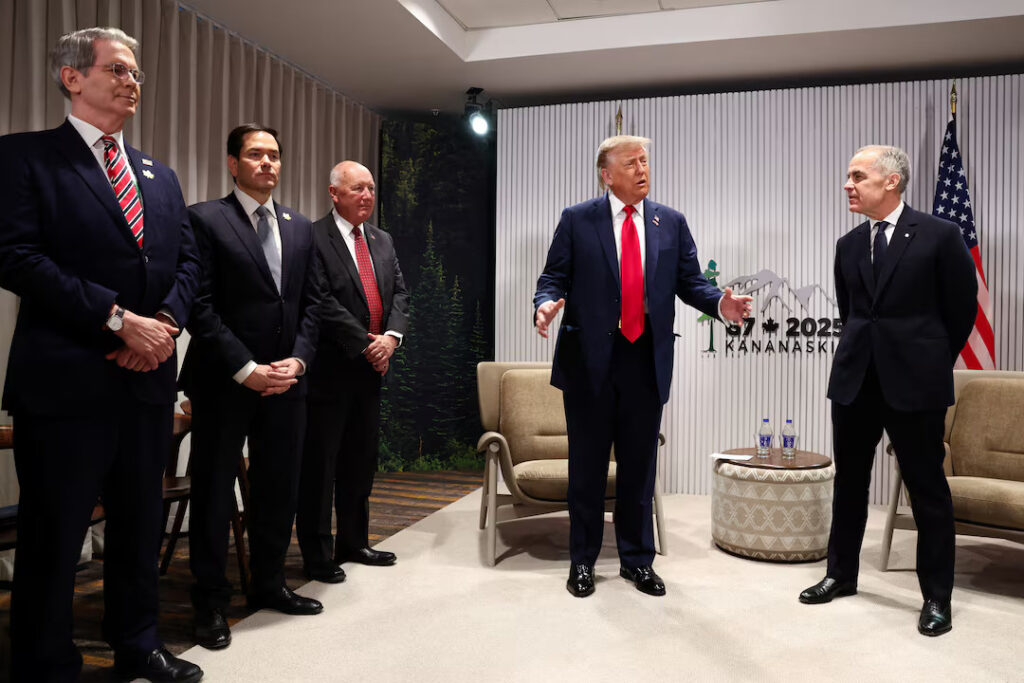
U.S. Treasury Secretary Scott Bessent, Secretary of State Marco Rubio and U.S. Ambassador to Canada Pete Hoekstra attend a meeting between U.S. President Donald Trump and Canadian Prime Minister Mark Carney, at the G7 summit in Kananaskis, Alberta, Canada, June 16, 2025. REUTERS/Kevin Lamarque
Despite not explicitly calling for Russia’s reinstatement, Trump’s comments have cast doubt on the level of support Ukraine can expect during President Volodymyr Zelenskiy’s upcoming meeting with G7 leaders on Tuesday. A spokesperson from the Ukrainian embassy confirmed Zelenskiy’s continued participation despite Trump’s absence.
In a bid to avoid the disarray of the 2018 Quebec summit, when Trump withdrew U.S. support from the final communiqué after leaving, Canada has opted against pursuing a unified statement. Several draft agreements on issues like artificial intelligence, migration, and critical minerals remain unendorsed by the U.S., sources told Reuters.
The summit did yield progress on trade, with Trump and British Prime Minister Keir Starmer finalizing a bilateral deal to reduce U.S. tariffs. Britain becomes the first country to conclude such a deal under the new U.S. administration. Trump also floated the possibility of an economic agreement with host Canada but insisted tariffs must remain a part of future negotiations.
“Our position is that we should have no tariffs on Canadian exports to the United States,” responded Kirsten Hillman, Canada’s ambassador to Washington.
Canadian Prime Minister Mark Carney, who invited non-G7 participants including India, Brazil, and South Korea, has expressed hope that a broader economic and security framework can be finalized within the next 30 days.
As G7 leaders prepare for their final sessions without Trump, questions remain over the group’s ability to present a unified front on global crises amid growing divisions.
Written By Rodney Mbua









